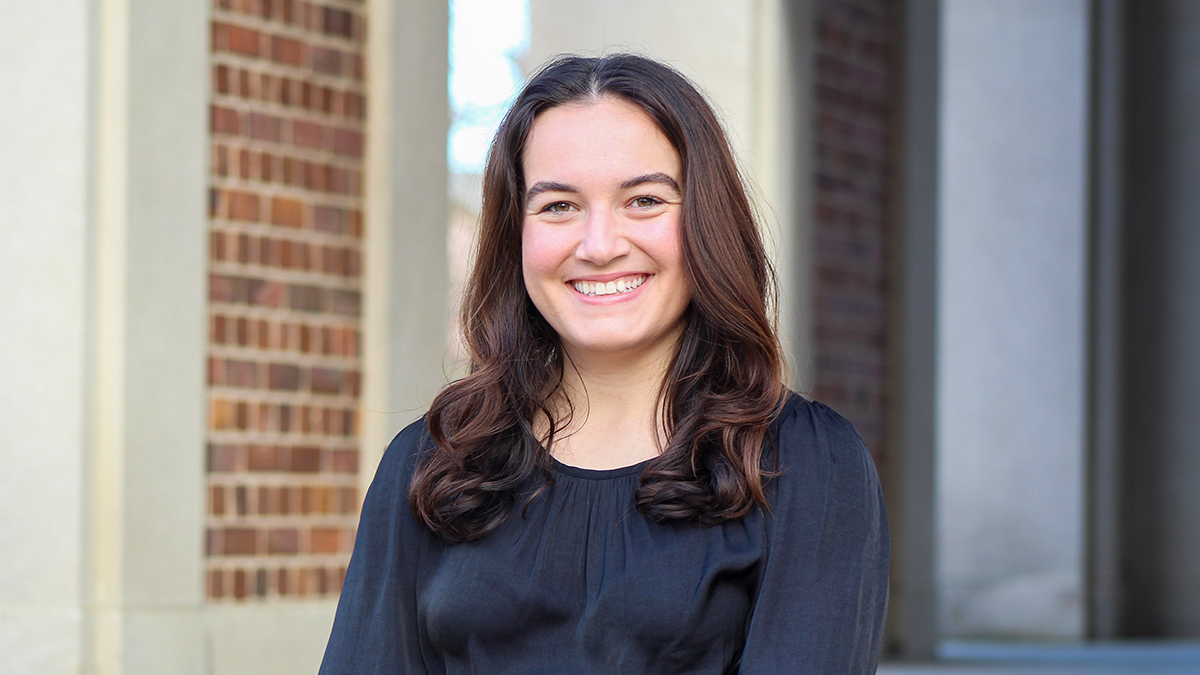Carolina Covenant celebrates 10 years
More than 2,470 have graduated from the Carolina Covenant program, their tuition covered by a combination of family contributions, grants, scholarships and work-study jobs.
In designing a program that would help Carolina attract the brightest students from low-income families, Shirley Ort knew she would need a simple message.
As associate provost and director of UNC’s Office of Scholarships and Student Aid, Ort knew that everyone would understand the words “no loans.” And in 2003, that’s how the Carolina Covenant began. As a message, as a promise.
“If you make the grade, and you get into Carolina, you can graduate debt-free. That’s a very simple, powerful message,” Ort said. “We’ve gotten the family’s attention, and we’ve made the promise.”
For a decade now, the University of North Carolina at Chapel Hill has kept its promise to those students – most from North Carolina – whose families earn less than 200 percent of the federal poverty level ($47,100 for a family of four in 2014-15).
More than 2,470 have graduated from the Carolina Covenant program, their tuition covered by a combination of family contributions, grants, scholarships and work-study jobs. So long as students keep their academics on track and work part-time at a campus job, they can reach graduation with no loans.
The Covenant has helped UNC defy a worrying trend in higher education. The Covenant was the first program of its kind among public universities, and remains one of the few still left. As other colleges have pulled back from no-loans commitments, Chapel Hill has stood behind its promise.
In the decade since the Covenant welcomed its first class, the national conversation has focused on rising tuition, the burden of student debt on a generation of Americans, and a looming “education gap” for students from lower-income families.
Nationally, the average debt for students graduating with student loans in 2012 was $29,400. Across the country, about two-thirds of public college graduates took on debt. The numbers at UNC are far lower. Only about one-third of graduating seniors take on debt, and the average borrowing has held steady for more than a decade. In 2012, UNC seniors with debt had about $16,000 in loans.
Still, the prospect of taking on loans can be especially daunting for families with little income and often no experience with higher education. Overcoming that worry is critical for low-income students to reach the caliber of colleges their grades and hard work have earned them.
“This education gap is a problem not only for the teenagers on the wrong end of it,” wrote reporter David Leonhardt in The New York Times. “It’s a problem for the American economy. The economic differences between college graduates and everyone else have reached record levels. Yet for many low-income children – even many who get As in high school and do well on the SAT – college remains out of reach.”
The New York Times’ economic team recently ranked top colleges on their economic diversity — essentially, their ability to recruit, enroll, and successfully graduate students from all income levels. Carolina was third in the nation, and far and away the top public university on the list. Grinnell College President Raynard Kington, whose institution ranked second overall, called investing in aid policies “the smart thing to do, because the country needs as much brainpower as we can get.”
The Beginning
Former Chancellor James Moeser traced the origins of the Covenant to a meeting Ort requested in 2003. “She said she had an idea. She told me that with a very small investment, we could convert the financial aid for the most needy of our students to grants rather than loans, and a small work-study component.”
Moeser agreed, and the Covenant was born.
“I’ve said this more than once: I think that it is the proudest moment in my eight years as chancellor,” Moeser said. “It really does make Carolina unique, and I love that about it.”
The key to sustaining Carolina’s promise over the past decade has been the complete, institution-wide commitment, Ort said.
“The real value in the program over the years is that the University feels like it owns it,” she said. “It’s just remarkable how many partners we had at the outset and how many have stayed.”
Ort and Moeser were quick to enumerate the contributions of the Covenant’s partners across campus:
- The Office of Student Affairs funds half the cost of Covenant orientation sessions every year.
- Dozens of faculty members volunteer each year to mentor students in the program.
- University Career Services has a program called Styled for Success, a clothing fund for upperclassmen who need professional attire for job and graduate school interviews.
- Carolina Performing Arts and PlayMakers Repertory Co. have donated tickets for students to attend performances on campus.
- PepsiCo made a major 10-year gift at the outset of the program, and just renewed it.
That kind of campus-wide support should come as no surprise, Ort said. “The Covenant reminds us of our best selves,” she said. “It arises from the culture that is already here at Carolina.”
Looking Forward
To continue meeting the full need of all students — and keep the Covenant’s promise to low-income families who have earned a place at Carolina — will mean a heavier reliance on private donations and other University funds.
Chancellor Carol Folt highlighted those challenges in a recent essay about Carolina’s long-term commitment to fair access. “It requires making tough but worthwhile choices, choices made by generations of leaders at our university and across our state,” she wrote. “It also relies on a commitment from taxpayers, alumni and donors who believe in the American dream: that opportunity is worth paying for; that talent and potential come from all backgrounds; and that excellence should be the standard for all students.”
The Covenant was born from those beliefs. And 10 years later, those beliefs sustain it.




